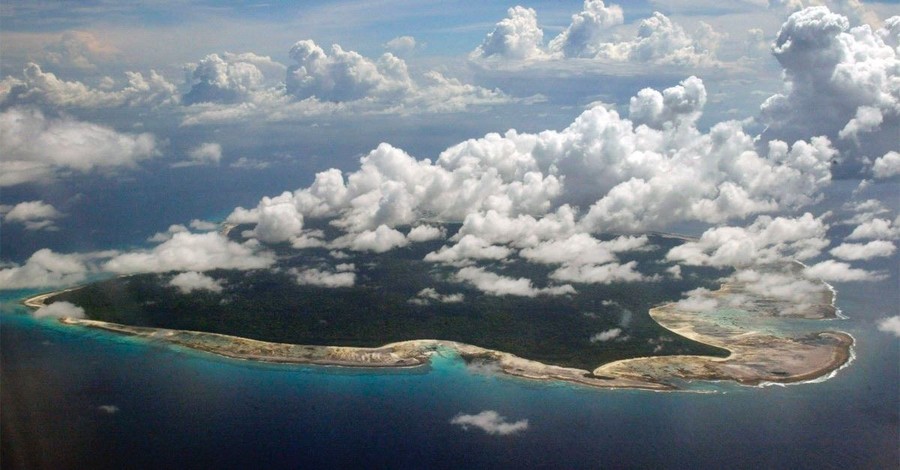
(RNS) — Last week we were reminded of a harsh lesson: The Christian missionary mandate, “Go and make disciples of all nations,” is a dangerous endeavor.
Throughout our history, missionaries have been misunderstood, maligned, mocked and even martyred as a result of their obedience to this command. Recently, the world has been made aware of this painful truth through the story of John Allen Chau.
According to news accounts, Chau was a graduate of Oral Roberts University and an avid outdoorsman and explorer. His Instagram feed is filled with pictures and stories of experiences in exotic places.
Along with his adventurous spirit, Chau seemed to have been passionate about sharing the Christian gospel with the Sentinelese, a tiny group on the remote island of North Sentinel off the coast of India.
Erika Hagelberg, a Norwegian geneticist, says the Sentinelese are part of a larger group of Andaman Island people whom she has labeled “arguably the most enigmatic people on our planet.” Missiologists consider the Sentinelese people an “unreached and unengaged people group.”
According to the website peoplegroups.org, there are no known Christians among these people. They have no Bible translations, no Jesus Film, no gospel recordings or other outreach programs. The Sentinelese are geographically isolated and without any form of Christian witness.
The spiritual state of the Sentinelese motivated Chau to sneak onto the island with the hope of sharing the Christian gospel. According to news accounts, Chau knew the risks he was taking. He also knew his actions violated Indian law.
Entries from Chau’s journal, published by The Washington Post, record that on one of his trips to the island, he stood on the beach and shouted, “My name is John, I love you and Jesus loves you.” One of the tribesmen shot at him with an arrow, but Chau managed to make it back to a fishing boat. On Nov. 16 he went back to the island, never to return. Later, fishermen reported seeing the tribesmen burying Chau’s body on the beach.
The death of Chau raises questions for Christians and non-Christians alike. There are ethical questions, as Chau deliberately broke Indian laws, first by proselytizing and second by deliberately entering a restricted area. There are questions about the wisdom of risking one’s life for such a small, isolated group of people who clearly want no interference from outsiders. There are also theological questions about the need for a missionary to go to such lengths to evangelize people who have had no previous encounter with the Christian message.
From all accounts, Chau’s actions demonstrated some serious missiological shortcomings. Had he approached me with his plan, I would have counseled against it. His zeal for evangelism seems to have clouded his judgment.
In my estimation, traveling to an isolated island alone, with no national support and scant knowledge of language and culture, was destined for failure. Success for a missionary cannot be limited to initial points of contact but rather the establishment of relationships that allow room for the gospel to be heard and observed.
In 1 Thessalonians, the Apostle Paul indicates that the life-changing power of the gospel was manifest in his preaching as well as in his living with the people.
What advice would I give to my students who want to see the lost reached with the gospel?
* Take the long view of the work. Discipleship requires time, relationship and strategy.
* Build partnerships with national Christians. Remember that the Great Commission does not belong to the Western church alone.
* Remember that good intentions do not guarantee success. Careless acts can actually create greater problems.
* Focus on prayer as a missionary strategy. God loves the people of the world more than we do. Through prayer, we partner with God in his mission.
Two other questions to ponder:
Was this particular trip necessary?
No.
Was there another way to reach the Sentinelese with the gospel?
Yes.
Though I would have advised against this endeavor, fulfillment of the Great Commission (Matthew 28:18-20) means someone must go and tell them.
The message of the Bible is that because of human rebellion and idolatry, all people are hopelessly lost. Even our best works are unable to eliminate the guilt and shame of our sin. But God, in his great love, has made a way for us to be reconciled. Jesus died to pay the price for our sin, and forgiveness comes through personal faith. This message is as true and necessary for those of us living in the gospel-saturated West as it is for those living in isolation like the Sentinelese.
It is still necessary for a missionary to take the Christian gospel to the Sentinelese people. We may be critical of the methods used in this situation, but we cannot disregard the fact that the good news must be shared in order for these people to know the hope and salvation available to them in Christ.
(Scott Hildreth is assistant professor of global studies and director of the Lewis A. Drummond Center for Great Commission Studies at Southeastern Baptist Theological Seminary in Wake Forest, N.C. The views expressed in this commentary do not necessarily represent those of Religion News Service.)
READ THIS STORY AT RELIGIONNEWS.COM
Article originally published by Religion News Service. Used with permission.
Photo courtesy: RNS/AP Photo/Gautam Singh










